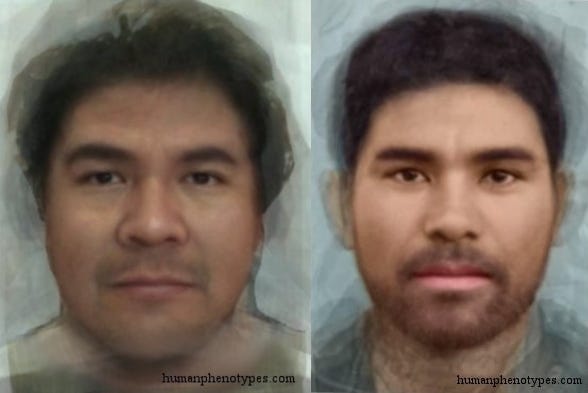Written by Liminal Revolutions.
Our world contains an incredible variety of human groups—and it’s the role of anthropology to catalogue and study them. Or it was, at any rate.
Anthropology's roots go back thousands of years—to Herodotus' stories of foreign civilizations and Tacitus' description of the Germanic peoples. During the Age of Discovery, the tales that merchants and explorers brought back with them influenced ideas like Rousseau's “noble savage” and Hobbes’s “state of nature”. Yet it was not until the late 19th century that anthropology became a real, empirical discipline.
Starting in the early 20th century, there was an explosion of field research: anthropologists travelled far and wide, living among diverse peoples and writing detailed ethnographies. Sadly, modern anthropology has largely diverged from this tradition, and finds itself concerned with politically correct questions like whether x-rays, casts and digital data should be defined as “human remains”.
Nonetheless, there is still a great deal of useful information from the golden era of anthropology in the mid 20th century. Some of this information can be found on humanphenotypes.net.
The website compiles physical anthropology data on myriad ethnic groups from around the world, including anthropometric descriptions, details about their geographical ranges, and facial image composites. In total, it covers 38 ethnic groups and over 200 subgroups from every continent—a far more granular classification than the basic “European, Asian, African, Australian, Amerindian” schema you might be familiar with.
It is this data that I used to build EthnoGuessr, the first anthropological guessing game on the internet—which recently went viral on social media. While humanphenotypes.net is a great resource, it isn’t particularly user-friendly. Nor is it optimized for engagement and pedagogy. In order to help spread this invaluable trove of knowledge on human diversity, I turned it into a game.
Analogous to GeoGuessr, you are shown two facial composites, male and female, and your job is to figure out where on the planet their ethnic group hails from. Be careful though, some of them are quite tricky. Can you tell which of the two men below comes from California and which comes from Japan?

Every day there’s a new puzzle, with ten different ethnicities to guess. A perfect guess nets you five thousand points, but if you’re more than 5,000 km away that number drops to zero. Even experts in human biodiversity have difficulty attaining an average scoring of more than three thousand points. Can you do better?
I got the idea for the game the first time I ever visited humanphenotypes.net. However, putting it together posed some challenges.
The hardest was figuring out how to extract geographical ranges from a rather pixelated Mollweide projection. Converting pixels into latitudes and longitudes was the first problem to solve. Converting those lists of points into polygons that could be drawn on a map was the second. In fact, I had been working on this problem for several hours when my friends proposed that it might be easier to simply draw it all by hand. But where's the fun in that? The solution I settled on is pretty good, though not perfect. (Frankly, the original maps are not perfect, with too much space between the Mediterranean and Caspian seas, for example). You can blame me if you’re expert enough to get just shy of a perfect score.
The reception to EthnoGuessr has been tremendous. In the first 12 hours after releasing the game there were over 100,000 hits to the site, which overloaded my Google Maps API free-tier. Thankfully, the game kept on working—without also overloading my credit card. I have since migrated to a free and open-source API, so there should be no further issues.
The next features I will be adding are a leaderboard linked to players’ X accounts, and a message on the completion screen showing you how your score compares to other players’ scores on the daily challenge. After that, I will be adding some region-specific challenges. How well can you distinguish between Chinese, Japanese and Korean? Since humanphenotypes.net only has so many ethnic groups and subgroups, I would eventually like to add a way for users to submit their own data, making the game more complex and interesting.
You can play EthnoGuessr at hbd.gg. Good luck and have fun!
Aside from working on EthnoGuessr, Liminal Revolutions also writes about epistemology, philosophy of science and emerging paradigms on Substack.
Support Aporia with a paid subscription:
You can also follow us on Twitter.





Dienekes used to makes composite photos of World Cup soccer teams, back before European teams became heavily immigrant. You might be able to obtain his photos from 2002.
Informative and enjoyable game!